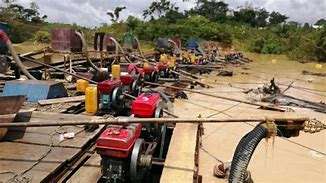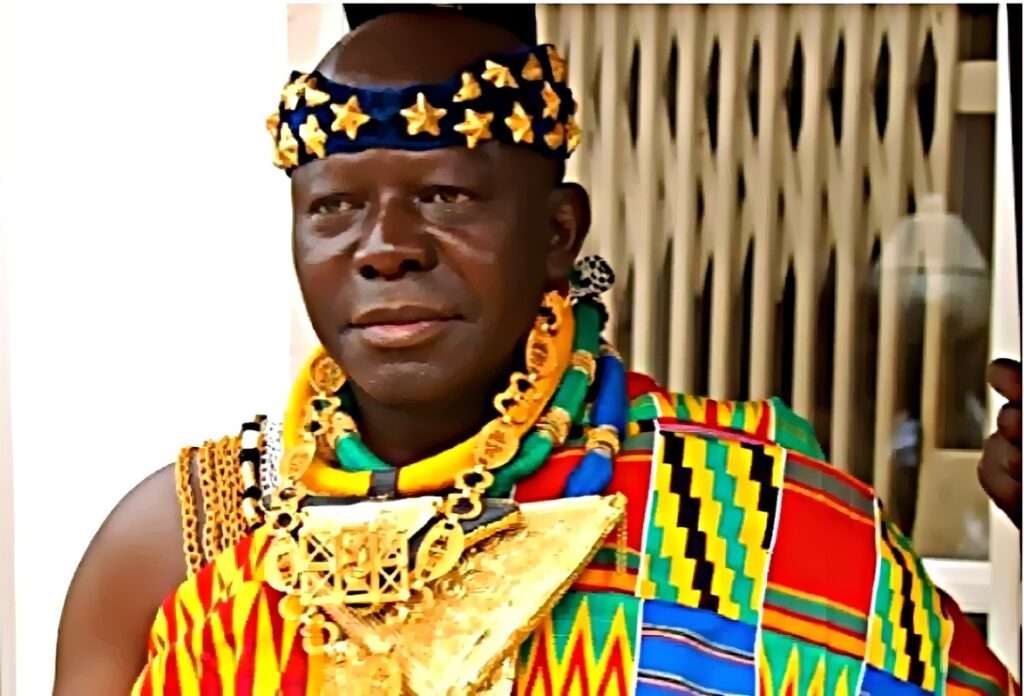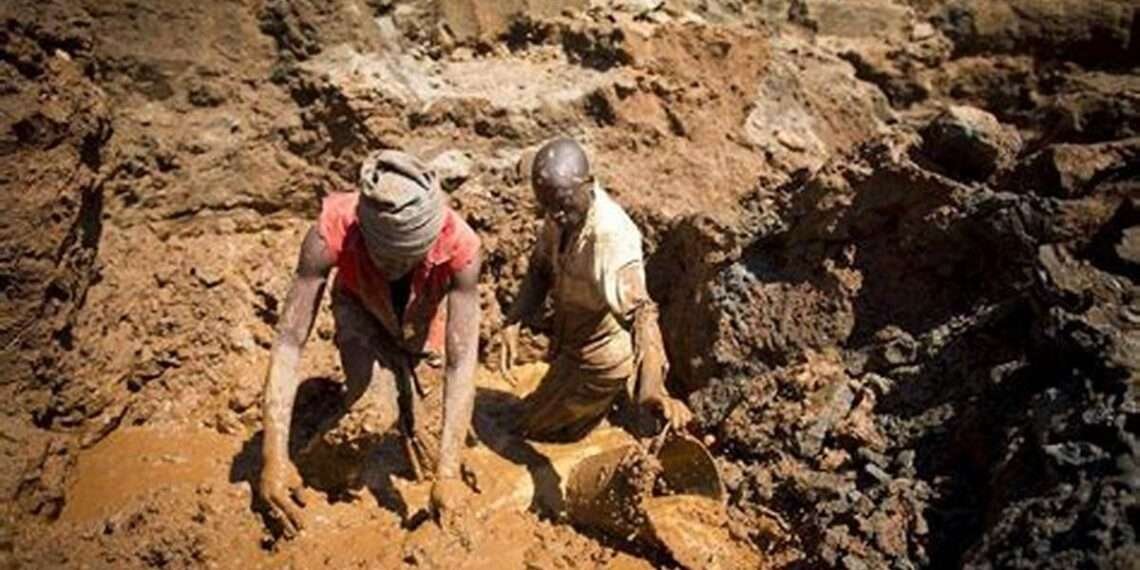In times past, when rivers and lands in Ghana were the sacred abode of gods, more so the gods themselves, no one dared visit them unduly, and polluting them was abominable even at a thought.
No one dared or you did at your unpardonable peril!
There was no need for millions of cedis on drones to protect them as they were the true panopticons of themselves and their people. There was no need for a specialized army unit and operations of the Vanguard, for they guarded themselves in trembling justice. Then, evidence was in no contention because the gods had some microcosm of omnipotence.
Those were the days when Nsho (Accra’s Sea gods) denied the swish of Tuesday’s fishing nets, and Asaase Yaa (Ashanti’s Motherearth gods) rendered sharp cutlasses useless on Thursday, and Tano, Pra, Ankobra, Volta, Antoa, Offin, Kunde, and Ablewa, all had their sacrament, to mention but a few.
Beholding to their divine achievements, towns were named after them; Tanoso, Praso, and Ayensuano, among others.
Traditional leaders, who were custodians of these gods, inexcusably enforced the strict requirements of the gods for social tranquility—through the mythology of taboos, superstition, folklore, folktales, music, and an overarching regard for the tenet of justice, maintaining sanity, incorruptibility, and purity unimaginable in this time.

The irony of the current times brings to profound memory, the late former President Jerry John Rawlings’ suggestion to invite public officers to the shrine on matters of corruption. He believes precedence, owing to his experience, proved they were far efficient and effective appellate adjudicators in such cases. Is there any doubt?
Traditional authority, then and now, occupies an exclusive trusteeship capacity over the blessings of nature from the Supreme Being. By their royal lineage, they owe a fiduciary duty to their people to hold these blessings in trust of posterity, in honor of the dead, and the interest of the living. The Palace is thus the very essence of sustainable development.
As the saying goes, “uneasy lies the head that wears the crown”. The privilege of royalty places the wholesome onus of protecting the blessings of nature on traditional leaders. The gods have therefore pledged and shown an unrelenting commitment to its bishops of the Palace.
Hence, whoever determined to protect the gods, the gods unreservedly protected and blessed. This deuterocanonical principle of cause and effect is evident throughout Ghanaian literature on community-wide plagues caused by the flouting of a taboo. It did not matter who it was, punishment was inevitable. Moreover, when culpability fell in the Palace, the punishment was much stricter compared to a commoner. Justice was served fairly and strictly.
Post-independence, the power of traditional authority on national issues, especially control over lands and natural resources continued to diminish significantly, especially under Nkrumah’s regime. In addition, strides of gains in Judeo-Christian traditions, individualism, and democracy in Ghana, significantly reduced the authority of the Palace and its role in what used to be a communal society. The role of the place suffered greatly along these enviable feats.
Over time, the government took greater control over the blessings of nature. The state by Article 257 (6) of the 1992 Constitution seized control over natural resources.
“Every mineral in its natural state in, under, or upon any land in Ghana, rivers, streams, water courses throughout Ghana, the exclusive economic zone, and any area covered by the territorial sea or continental shelf is the property of the Republic of Ghana and shall be vested in the President on behalf of, and in trust for the people of Ghana.”
Article 257(6) of 1992 Constitution

While the seizure is justifiable, governments over the years have proven to be not so worthy trustees of the blessings of nature.
By late 1970 and early 1980, the interplay of a shortage in foreign exchange, domestic economic hardship, and a growing awareness of the potential fortunes of unregularized mine waste laid a fortifying foundation for residents in Prestea, Western Region, to begin what would be later called galamsey. They began largely harmless, with a shovel and a head pan. At this stage, one could call it small-scale mining.
However, the inefficiency of the shovel and pan method led to the use of mercury to amalgamate the gold dust for onward processing. The new process was very efficient but poisonous because of the introduction of mercury, cyanide and chanfang machines later on. This, in brief, is how it became illegal small-scale mining.
By the early 2000s, the confluence of increased mining concessions, the apparent relegation of indigenes of host communities in employment opportunities at the mines, lack of tangible community development while politicians and government appointees seemed to be fattening from the spoils of their inheritances, some chiefs joined the fray. It is said, that if you cannot beat them, you join them. All hell broke loose at this point!

The custodians of the blessings of nature, the conduits of the gods, and the ancestor’s defense attorney, the Palace, became the intermediary of a menace against itself. The gods desolated and silenced by the betrayal, must have fled their once sacred peaceful abode to prepare for the country and all its accomplices, a plague never experienced.
Deformity in babies recently shared over the internet may be the least of what the gods are yet to unleash. Would the gods even have to? No, nature remains the only and best defender of itself!
Approbations to some “servants of the gods” who have risen, in sincere intent and effort, to the occasion. Prominent amongst such examples is the King of Ashanti, Otumfour Osei Tutu II, who recently destooled five chiefs under his kingdoms on their participation in galamsey.
Royals Lead Wars From The Front
The Vice President of the Central Region House of Chiefs, Osaegyefo Kwmae Akonu X, as well as many Ghanaians, have appealed to the government to empower chiefs to fight the menace. Such postulation ignores the overarching and exclusive role the Palace has in this fight and assumes the distant and central government is more concerned and capable than the Palace. That cannot be the case when the central government has spent close to GHS 1 billion in futility on the fight The Palace does not need such empowerment. It has the capacity overwhelmingly. Royals fight at the forefront of battles!
In haste, the Palace must return to the days when the true tenets of the rule of law were the order of the stool. The stool apprehended all, regardless of affiliation, in the supreme interest of the peace of society. It was no respecter of person. Admittedly, the Palace cannot behead folks any longer, but it still has a plethora of mechanisms, from banishment to summoning, to fight for its natural resources and people.
But first and particularly, the Palace must as far as possible distance itself from partisanship politics on the issue. The remnant authority of the Palace is still enough among its people to make conscientiously puppet of politicians and foreign investors for this good cause.

The Palace ought to notice that, it is the ultimate and immediate beneficiary of all the poisonous substances from the menace. Being corroborators would do the Palace no good. Governmental agencies, Acts of Parliament, Executive Orders, and operations continue to fail because the Palace betrayed the “sacraments of gods”.
The Palace, thus far in practice, remains the true custodian of the blessings of nature in Ghana. It, therefore, must take the center and captain role on this sail, not the cabin and crewmen role it has, hitherto, humbly accepted. The Palace should evoke the powers of the institution of the Palace, bringing all its influence to bear on the menace. This war will only be won at its exclusive behest and interest.
In South Africa, galamsey is called Zama-zamas, a Zulu parlance that translates to taking chances. Ghana cannot take chances at this any longer. If Ghana fails on this battleground, it fails because the Palace undermined or underestimated its authority.
It is time to “re-evoke the gods”!























